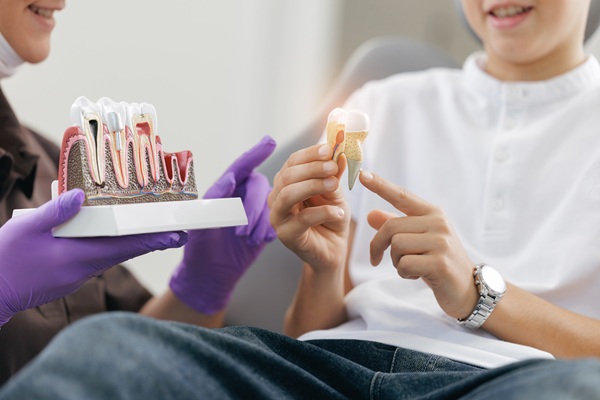How to Prepare For Dental Implants

Getting dental implants is a process that takes several procedures done over several months. Some of the visits are for oral surgery, so you will have to prepare yourself.
Small preparation steps will help to get your body ready for the procedures, while others will help you heal after the oral surgeries.
Here is what you need to do to make sure your dental implant treatment is successful.
1. Get a comprehensive dental examination
An exam helps a dentist determine if a patient is a good candidate for dental implants. It also gives valuable information that the dentist uses to come up with a treatment plan.
The dentist will evaluate the patient by taking x-rays, doing a visual exam and going through the patient's medical records.
The step-by-step process of placing the implant will depend on the following information:
- If a patient is found to have a weak or suppressed immune system, the dentist will put them on antibiotics before and after each oral surgery
- If the patient is allergic to any anesthetic or dental materials, the dentist will use alternatives
- If the patient is on medication that could interact with the anesthetic or affect the dental implant surgeries, the dentist will adjust the treatment plan
- If the patient's jaw needs to be prepared, the dentist will perform bone grafts or jaw reshaping to the treatment plan
- If the patient is extremely healthy, the dentist may choose to place the implant and abutment during a single surgery. In some cases, the dentist may even fit the crown along with the implant and abutment
Based on the results of the evaluation, the dentist will formulate a treatment that will cater to the patient's needs. They will take the patient through the treatment plan and advise the patient on how to prepare for each procedure.
2. Start a course of antibiotics if necessary
If you receive a medical implant or organ transplant, then you may use immunosuppressant drugs to prevent the body from attacking the implants/transplants. Before having dental implants fitted, you must take antibiotics, which take up the role of a substitute immune system.
For this same reason, patients with chronic conditions must take antibiotics before and after getting dental implants.
3. Prepare the body for the procedure itself
If you will receive the oral surgery under general anesthesia, then you will have to fast for 12 hours before the surgery begins. You should also wear loose, comfortable clothing that will help the procedure to go smoothly.
4. Get the jaw prepared if necessary
If for whatever reason, the jaw cannot anchor the implant properly, the dentist will improve the jaw's structure in one of the following ways:
- The dentist will do a bone graft if the jaw is too thin or too soft to hold an implant
- They may smooth or reshape the jaw if needed
- If the jaw is too large or bulky, the dentist will remove some bone from the jaw
- The dentist will also remove any impacted teeth found inside the jaw
After the jaw heals, the remaining dental implant procedures can occur.
5. Schedule downtime and prepare for after-care
After each procedure, some soreness and swelling is to be expected, so you will need to rest and heal. You should give yourself a few days off by making some arrangements before each surgery. Arrangements such as:
- Stocking up on soft foods and pain medication
- Getting two days off from work or social engagements
- Having a light schedule for one week after the oral surgery
- Taking a break from exercise
- Arranging for childcare or help around the house for the first two days after oral surgery
Preparation affects outcome
How you take care of yourself before and after each procedure will affect how fast and how well you heal. The preparation may sound like a good deal of work, do not worry. The dentist will guide you every step of the way.
Are you considering a dental implant in the Benicia area? Get more dental implant information at https://beniciadentist.com.
Recent Posts
A dental implant crown is an artificial tooth that connects to the embedded post in the patient's jaw by means of an abutment. The crown is the visible part of the three-piece implant used to replace a missing tooth through a surgical procedure. The dental crowns used with implants are usually made of porcelain but…
Choosing dental implants is a great idea if you are looking into your tooth-replacement options because you are missing one or more of your teeth. This option is one that offers benefits that other replacement options do not, which is why so many patients are choosing implants to replace their missing teeth. Other replacement options…
Dental implants are one of the options you get to choose from if you are missing one or more teeth. A growing number of people are opting for implants thanks to the convenience that comes with them and their bone tissue preserving properties. Dental implants are rods/screws that are inserted into the jawbone to serve…
If you are missing one or more teeth, you are probably considering getting them replaced. Dental implants have become a popular option for teeth replacement. Although there are many benefits of this option, it is not necessarily the right choice for everyone. Along with meeting the requirements of what it takes to be a good…


